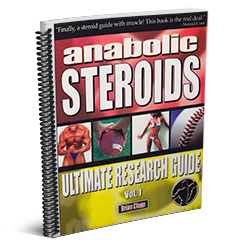Would sugar have the same effect AS insulin? Remember, sugar (among other things) causes insulin to be released. You eat sugar, your blood glucose levels rise, insulin is released to 'clean up' the mess.
It most definitely has an anabolic effect; insulin is our most anabolic hormone. But I think your question is 'will it build muscle and not add to fat?" Remember that a few key components have to be in place for muscle growth to occur:
1) stimuli - muscle needs a reason to grow. heavy workload, breaking it down, making it work beyond it's capacity
2) depleting muscle glycogen -
if stores are depleted, they will get preference over fat cells - until full. Therein lies the central issue... the 'spill over'. If too many calories are eaten (regardless of carbs/sugar), caloric overage will be stored as fat.
I know why you're asking this question, and I'm telling you... don't sweat it. If you're reading this before my post in your log... go read that!

No problem!







 Reply With Quote
Reply With Quote


 Don't be a 'Bro'..... Believe nothing....Question everything
Don't be a 'Bro'..... Believe nothing....Question everything 

